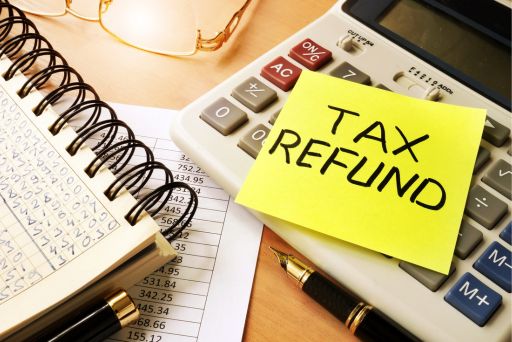
Many business owners feel that they are strapped for cash, would like to expand their business but don’t know how or how it would be possible. One thing I learned growing up in a low-income household is that there’s always something you can do to change your status. Many times all it takes is to outline your (or your business’) strengths and skills, think outside the box, and network. Instead of wishing for something great to happen, you’ll be able to find helpful and effective ways to make a little business luck of your own, from the items you include in your outline.
Case study: From the beginning, I have paid for everything in cash for my business along the way. It is a goal I’ve had to not borrow any money. This makes it tricky when I just started out, would look at the account and realize, I needed to cut costs, and certain invoicing software costs more than I can afford. So…I went hunting for new invoicing software that was cheaper. I did find one that fit all the needs I had with a trial version. I tried it out and realized that it was a small business developer just starting out. It had most things I needed and the developer would get back to me very quickly on questions I had. After a few months, I found I needed to upgrade to a higher level of this invoicing software because my business had grown. I decided to talk with him about his business needs. This is something you can do with small businesses, but larger businesses are more set in stone. We ended up striking a deal. I test his software out, give him recommendations as I go as a user, he’d change anything I needed along the way and I’d get the product for free for my team for as long as that worked for both of us.
Top 3 ways to Change Your Business Luck:
- Affiliate Marketing
- Collaborative Partnerships
- Negotiations
How to get people to help you out: If you like the sound of a deal like that, look for opportunities, and look for ways that your business can benefit not only customers, but other businesses you need things from. You may have to sacrifice fancy bells and whistles, but you can save money and make a great partnership as well.
Affiliate Marketing: You may have heard this buzzword and be intrigued. Many people get passive income by promoting products on a sales site like Amazon. When customers buy the product through your specialized link, you get a “commission” or “affiliate percentage” off of the sale. This can be done to a huge scale, or if you have a product that compliments your current business strategy (for example, I had a Martial Arts studio client with insanely popular YouTube videos. They started selling costumes the martial artists would wear in the videos with the Amazon link and getting a share from those that would purchase through their link. *Note: You need a large following to make this profitable.
Collaborative Partnerships: This takes a little more risk and “schmoozing.” When you are looking to lower bills, think about what costs most. Think about other ways you could possibly solve that problem that would cost less OR think about how another business you know of might be able to solve your problem. In the ladder case, think about what you have that could benefit that company, and then approach them. I like to offer free Small Business Spotlights as a way to grow exposure and help small businesses get to know me better instead of slimy sales tactics and cold calls. *Note: Make a list of the ways you can benefit them ahead of time. Any size business can use this tactic.
Negotiations: These require the most guts but they can be the most beneficial if you think less like a used car salesperson, and more like a friend who wants to help and needs a favor. When you find a company or person you want to help your business, money is not the only thing that speaks. Think about the needs that company/person has. Set an appointment to discuss a partnership. When you go in, build the relationship, voice your concern, and then just like in the Godfather, “give them an offer they can’t refuse.” Well maybe not COMPLETELY like in the Godfather 😉 *Note: Make a list of the different outcomes you’d be okay with ahead of time. If they say no, find out why and be ready to solve THEIR problem. Any size business can use this tactic.

Different levels of businesses need different levels of these strategies. For more information on the specifics of how to make affiliate marketing, collaborative partnerships, and negotiations help your business succeed, here’s a previous article and an upcoming online free conference that will help!
Frequently Asked Questions
1. How can I expand my business when I feel strapped for cash?
Expanding your business with limited cash flow is possible by leveraging your strengths, thinking outside the box, and networking effectively. Start by outlining your business’s strengths and skills, and explore opportunities like affiliate marketing, collaborative partnerships, and negotiations. These strategies can help you maximize your resources without requiring significant upfront capital.
2. What is affiliate marketing, and how can it help my business?
Affiliate marketing involves promoting products or services on platforms like Amazon, where you earn a commission for each sale made through your specialized link. It can help your business generate passive income, especially if you have a large following. For instance, if your business has an online presence, you can promote products that complement your offerings and earn extra revenue without additional costs.
3. How can I use collaborative partnerships to lower my business costs?
Collaborative partnerships involve working with other businesses to solve mutual problems or reduce costs. Identify areas where your business could benefit from another company’s expertise, and approach them with a mutually beneficial proposal. For example, offering a Small Business Spotlight in exchange for discounted services is one way to create a win-win situation that reduces your expenses.
4. What are some tips for successful business negotiations?
Successful negotiations require understanding the needs of the other party and offering solutions that benefit both sides. Approach negotiations as a partnership rather than a transaction. Before negotiating, list possible outcomes that you find acceptable, and focus on building a relationship with the other party. Offer a proposal that addresses their needs while fulfilling yours, and be prepared to adjust your offer based on their feedback.
5. How can I find opportunities to make strategic partnerships for my business?
To find strategic partnership opportunities, start by assessing your business needs and identifying companies that could help meet those needs. Research potential partners and consider how your business can offer value to them. Networking events, industry conferences, and online communities are excellent places to connect with potential partners. Approach them with a clear proposal that outlines mutual benefits, and be open to creative solutions that can help both businesses thrive.
























